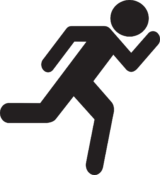10 Books to Read While Recovering from a Severe Injury
Recovering from a severe injury can be a challenging time, filled with moments of frustration and plenty of downtime. One of the best ways to pass the time and lift your spirits is through reading. Books can transport you to different worlds, provide comfort, and even inspire you to keep pushing forward. Here’s a list of 10 books that are perfect for anyone on the mend. 📚✨
Table of Contents
1. Introduction
2. Fiction Favorites
3. Inspiring Memoirs
4. Uplifting Non-Fiction
5. Conclusion
6. FAQ
Fiction Favorites
1. The Alchemist by Paulo Coelho 🌍
This enchanting novel tells the story of Santiago, a young shepherd on a journey to find a hidden treasure. Full of wisdom and magic, The Alchemist is a beautiful reminder of the importance of following your dreams and listening to your heart.
2. The Secret Garden by Frances Hodgson Burnett 🌿
A classic tale of healing, The Secret Garden follows the story of Mary Lennox, a young girl who discovers a hidden, neglected garden that transforms her life. This book is a perfect read for those looking to find beauty and hope in unexpected places.
3. Where the Crawdads Sing by Delia Owens 🦆
Set against the backdrop of the North Carolina marshes, this novel weaves a rich and emotional story of growth and resilience. It’s a testament to the strength of the human spirit and a gripping read that’s hard to put down.
Inspiring Memoirs
4. Becoming by Michelle Obama 🌟
In her deeply personal memoir, the former First Lady of the United States shares her inspiring journey from the South Side of Chicago to the White House. Becoming is a story of resilience, hope, and the power of perseverance.
5. When Breath Becomes Air by Paul Kalanithi 🩺
This poignant memoir by a neurosurgeon facing terminal cancer provides profound insights into life, death, and what it means to truly live. It’s a touching and thought-provoking read that offers comfort and perspective.
6. Educated by Tara Westover 🎓
An unforgettable memoir about a young woman who, kept out of school by her survivalist family, goes on to earn a PhD from Cambridge University. Educated is a powerful testament to the transformative power of education and self-discovery.
Uplifting Non-Fiction
7. The Power of Now by Eckhart Tolle 🧘
This spiritual guide is perfect for those looking to find peace and presence during recovery. Tolle’s teachings on mindfulness and living in the moment can help you find calm and balance, even in challenging times.
8. Big Magic: Creative Living Beyond Fear by Elizabeth Gilbert 🎨
Whether or not you consider yourself creative, Big Magic encourages readers to embrace curiosity and let go of fear. It’s an inspiring read that encourages a joyful and adventurous approach to life.
9. The Happiness Project by Gretchen Rubin 😊
Gretchen Rubin’s year-long quest to become happier is filled with practical advice and insights. The Happiness Project is a lighthearted, yet profound read that can help you find joy and gratitude in everyday life.
10. Atomic Habits by James Clear 🔄
Recovery is a great time to build positive new habits. Atomic Habits offers practical strategies for making small changes that lead to remarkable results, perfect for anyone looking to make the most of their recovery time.
Conclusion
There you have it—10 fantastic books to keep you company on your road to recovery. Whether you’re looking for inspiration, comfort, or simply a good story to get lost in, these books are sure to provide hours of enjoyment and reflection. Happy reading and speedy recovery! 📖💪
FAQ
1. What type of books are best for reading during recovery?
Books that offer inspiration, comfort, and engaging stories can be particularly uplifting during recovery. Fiction can provide an escape, while memoirs and non-fiction can offer valuable lessons and motivation.
2. How can reading help in the recovery process?
Reading can be a soothing activity that reduces stress, provides mental stimulation, and offers a temporary escape from physical discomfort. It can also inspire and motivate, offering new perspectives and hope.
3. Are there any specific genres to avoid while recovering?
It depends on personal preference, but some might prefer to avoid overly intense or stressful books. Lighthearted, uplifting, and inspirational reads are generally more suited for recovery periods.
4. Can audiobooks be a good alternative?
Absolutely! Audiobooks are a fantastic option, especially if physical movement is restricted. They allow for hands-free enjoyment and can be particularly helpful for those with visual impairments or fatigue.
5. How can I find more book recommendations?
Online book clubs, literary websites, and local libraries are great resources for finding book recommendations tailored to your interests and needs.

